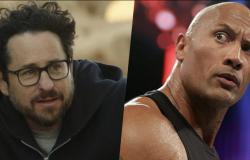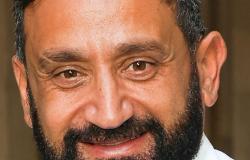The Iraqi Kurdistan region stands on the cusp of a new phase with the imminent emergence of a new elected parliament, from which a new government with full powers will emerge capable of handling internal and external files, according to observers.
Many observers believe that the new phase is very different from its predecessors, as for the first time the slogan of changing the course and philosophy of governance is raised in the Kurdistan region by parties participating in the elections.
The political analyst and former advisor to the Speaker of the Kurdistan Regional Parliament, Mahmoud Khashnaw, says, “The Kurdistan Region is moving towards a parliamentary map that differs from the previous one, in which there is no principle of half plus one, or in which the opinion of one party prevails over all.”
In his speech to Al-Hurra, Khashnaw believes that the new parliament will deal comfortably with regard to legislating laws, passing the government, and holding its president or his ministers accountable.”
Khashnaw expected that the new parliament would deal with many important issues, including the budget law, which had not been entered into parliament over the past ten years.
He also indicates that the issue of the balance of power in the Kurdistan region will be among the issues that the new parliament will deal with, as well as the law of the region’s presidency, the prime minister’s office, and the voting mechanism within the Council of Ministers in the region.
Christian “boycott” of the Iraqi Kurdistan Parliament elections due to the seat quota
The boycott of Christian parties participating in the Kurdistan Regional Parliament elections scheduled to be held on October 20, due to reducing the number of their seats to three, left a gap in filling the seats allocated to them, until Kurdish and other Christian parties outside the region began to ally with Christian figures close to them to run for these seats. Seats.
Other specialists believe that the new parliament and the government that will be formed after the elections must work to resolve the disputes with Baghdad related to the region’s share of the federal budget and the status of the Peshmerga forces as part of the national defense system, in addition to the files of the disputed areas and oil resources.
Political analyst Yassin Aziz told Al-Hurra that the presence of a strong, fully-fledged parliament and a strong government emanating from all political parties and having a unified position will strengthen the region’s position during dealing with the federal government.
Aziz adds that the Kurds have many outstanding issues that require good efforts to reach agreements and common ground between Baghdad and Erbil.
However, with the depth of the differences within the Kurdistan House, many politicians believe that these differences are “complicated,” and may be a reason for obstructing the formation of the next government, which practically means the continued administration of the region by a government that has incomplete powers once again.
The authorities of the region, which has been autonomous since 1991, announced that legislative elections would be held on October 20 to choose 100 members of Parliament, after the vote was scheduled for the fall of 2022 and was postponed four times.
For decades, Iraqi Kurdistan has witnessed a competition for power between two main parties and their families: the Kurdistan Democratic Party and the Barzani family, and the Patriotic Union of Kurdistan and the Talabani family.
In addition to these problems, some of which are due to tensions between the local and central governments in oil-rich Iraq, Erbil has stopped exporting oil, which it had previously done without obtaining Baghdad’s approval. For more than a year, the region was deprived of these financial gains following an international arbitration decision that came in favor of Baghdad.
The Kurdistan Democratic Party, with its stronghold in Erbil, has a relative majority in the Kurdish parliament, where it holds 45 seats, in addition to alliances with representatives from the Christian and Turkmen minorities who obtained seats in parliament through the quota system. As for the Patriotic Union of Kurdistan and its stronghold, Sulaymaniyah, the second largest city in the region, it holds 21 seats.
The number of voters registered to vote in the four districts in the sixth session of the regional parliament elections is approximately 2.9 million voters, according to the Independent High Electoral Commission in Iraq.
In addition to these problems, some of which are due to tensions between the local and central governments in oil-rich Iraq, Erbil has stopped exporting oil, which it had previously done without obtaining Baghdad’s approval. For more than a year, the region was deprived of these financial gains following an international arbitration decision that came in favor of Baghdad.






